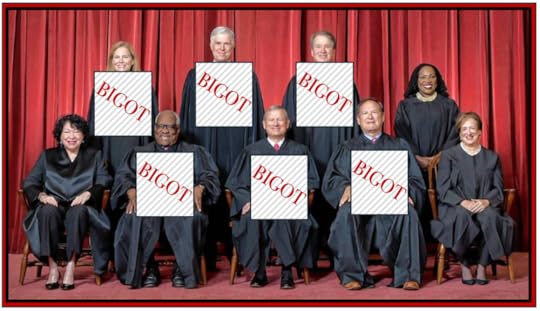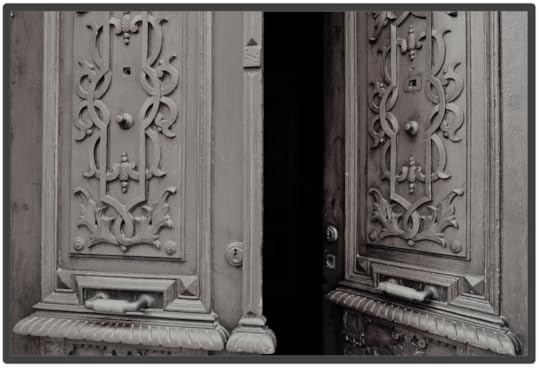A SCOTUS mistake from the start

Last month, the U.S. Supreme Court gave permission for business owners to refuse service to anyone they don’t like.
Many people have weighed in on the injustice of this decision, so I won’t rehash that aspect. But I will say this: SCOTUS should never have agreed to hear this case.
The plaintiff was Lorie Smith, a Colorado web designer, who opposes marriage equality based on religious dogma she believes. She opened a lawsuit in 2017, claiming that a man whose first name is Stewart had requested that she design a website for “a gay marriage.” The state was forcing her, she claimed, to do something against her religion.
Four flaws were immediately apparent:
Smith was not designing wedding sites in 2017.
Stuart did not make any request of her. And he was already married—to a woman.
Stewart is, himself, a web designer and did not need Smith’s services.
Smith offers her services to the public.
Smith lost the case she brought to the Colorado courts, so she appealed to SCOTUS. And despite the obvious absurdities, SCOTUS agreed to hear the case. Either they did not bother to check the validity of Smith’s claims, or at least six of the justices didn’t care. In either case, they heard the case, they found in favor of Smith, and so they have opened the door to discrimination against LGBTQ+ individuals across the country.
This decision is, on the surface, a profoundly bigoted one and an obvious slap in the face to gay individuals in general and marriage equality in particular. Beneath that surface is evidence that bigotry makes people stupid (and perhaps the other way around, as well). Because if the six justices who agreed with Smith are chuckling in their robe sleeves, what they haven’t considered is other ramifications of what they’ve done.
Scenario 1: An Asian man and Black woman are engaged and planning their wedding in Denver. They approach web designer “Jones” to design a website for their event. Unbeknownst to them, Jones is a white supremacist who thinks anyone who doesn’t belong to the superior white race should head back to wherever they came from. He leans on cherry-picked biblical scripture to support his position and also to deny inter-racial marriage.
Scenario 2: A Satanist baker in Colorado Springs doesn’t ask about her clients’ religious persuasions, but when an engaged couple come into her store and ask for a wedding cake festooned with crosses and other Christian symbolism, she shakes her head. “Nope; won’t do it.”

Until now, Colorado’s laws would have prevented both of these discriminations. But because of the recent SCOTUS decision, both these businesses can turn these couples away with impunity.
Legal bigotry against Asians and Blacks; legal bigotry against Christians. Are these scenarios likely? We don’t know. Yet. But SCOTUS has flung the door open to the possibility. So I’ll say this again: SCOTUS SHOULD NEVER HAVE AGREED TO HEAR THIS CASE.
Robin Reardon: Speaking of writing...
- Robin Reardon's profile
- 181 followers



